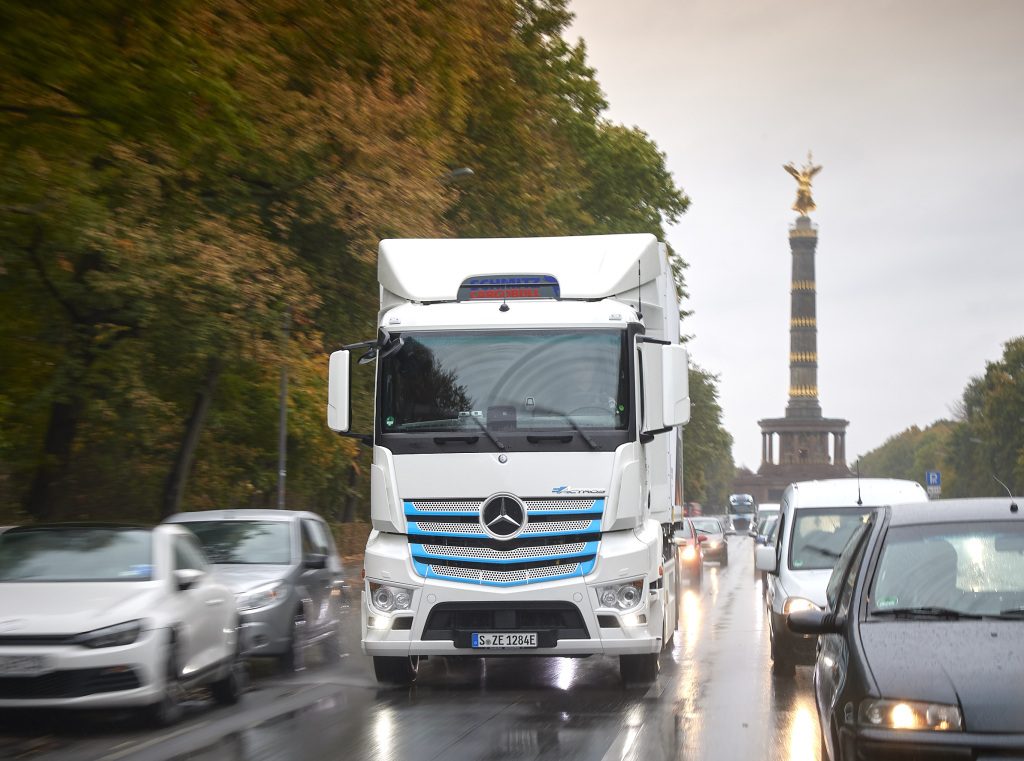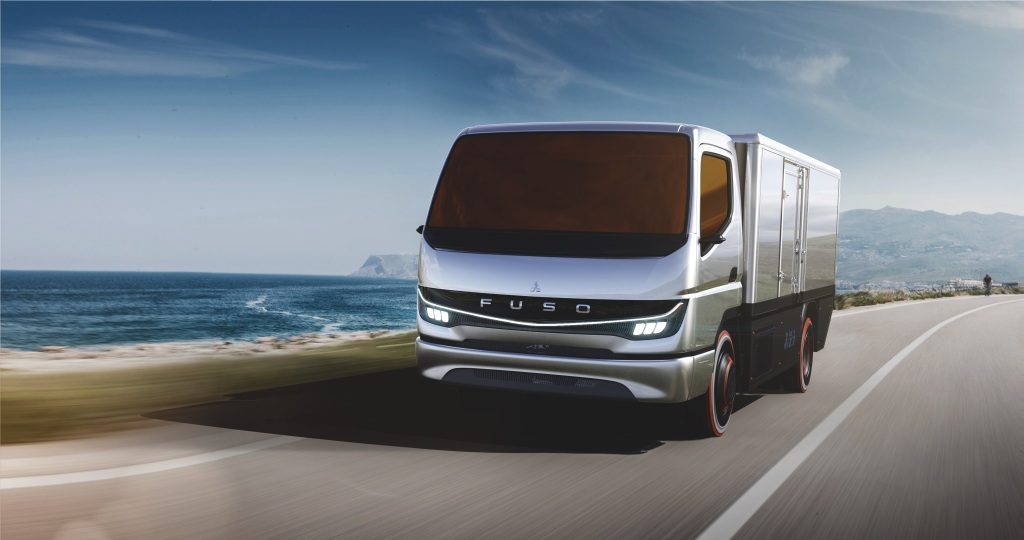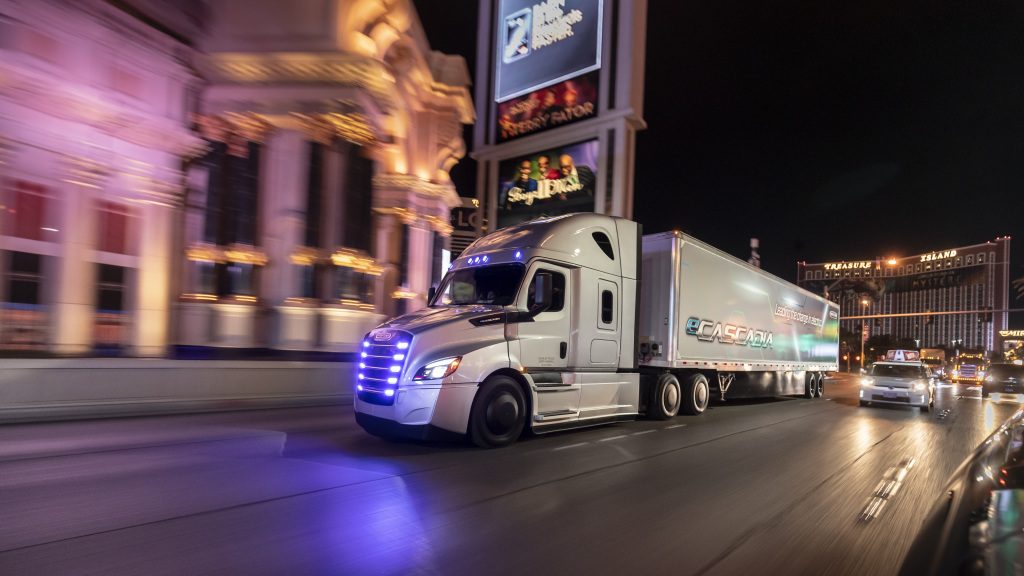Daimler Trucks & Buses targets completely CO2-neutral fleet of new vehicles by 2039 in key regions

Daimler Trucks & Buses is pursuing a sustainable corporate strategy and aims to offer only new vehicles that are CO2-neutral (‘tank-to-wheel‘) in driving operation in the triad markets of Europe, Japan and NAFTA by 2039.
By 2022 it plans to include series-produced vehicles with battery-electric drive in its vehicle portfolio in its main sales regions Europe, USA and Japan. By the end of the next decade, the company will extend its range of vehicles with hydrogen-powered series production vehicles.
Last week Daimler Trucks & Buses celebrated the world premiere of the FUSO brand fuel-cell prototype ‘Vision F-Cell‘ at the Tokyo Motor Show in Japan, further strengthening its activity in the hydrogen field. In addition, all the company‘s European plants will be CO2-neutral by the year 2022, with all other plants to follow.

In his keynote address at the International Supply Chain Conference in Berlin, Martin Daum, member of the board of management of Daimler AG, responsible for Trucks & Buses, said the company was committed to the goals of the Paris Climate Protection Agreement and to to the decarbonisation of the industry.
“Having CO2-neutral transport on the road by 2050 is our ultimate goal. This can only be achieved if competitive conditions for CO2-neutral transport are created for our customers in terms of costs and infrastructure. As it takes about 10 years to completely renew a fleet until 2050, our ambition is to offer ‘tank-to-wheel‘ locally CO2-neutral new vehicles in the triad by the year 2039.”
Daum said truly CO2-neutral transport only works with battery-electric or hydrogen-based drive.
“We were the first manufacturer to seriously commit to electromobility in heavy trucks and, today, are pioneers and in all segments with electric vehicles in customer use. With our holistic approach to e-mobility in the bus sector, which consists of an electric city bus and consulting, we are already making a significant contribution to the locally emission-free public transport of the future and air pollution control in urban areas.”

Daum said locally CO2-neutral trucks and buses won‘t sell themselves, because even in 2040 – despite all efforts by manufacturers – the acquisition and total cost of ownership of trucks and buses with electric drives will be still higher than for diesel vehicles.
“We therefore need government incentives to make locally CO2-neutral trucks and buses competitive. Particularly necessary: converting and staggering tolls Europe-wide based on CO2 values whereby CO2-neutral vehicles would get significant relief, a targeted subsidy programme for buses, and for a nationwide charging and hydrogen infrastructure as well as uniform standards for the transport and refuelling of hydrogen.”





